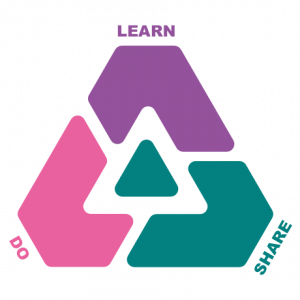We’re talking to Henri, one of the two owners of Aresz. In its current form, Aresz has been operational for four years, helping organizations to drive, control and improve projects, as well as entire companies. Together with his business partner Marcel, Henri guides and mentors the employees of Aresz, also known as ‘Areszers’. In doing so, they receive some help from TruQu. Henri: “Marcel and I were previously employed by larger secondment companies, and therefore were used to big conversations, personal development plans, yearly evaluations, and so on. We came to the conclusion that this would never suit the young group of consultants we have at Aresz. So, we wanted to try something different.”
Business case
Aresz
Learning, doing and sharing at Aresz with TruQu
Implementation
Already acquainted with TruQu, it wasn’t long until Marcel and Henri found the right support for their learning culture, and Aresz and TruQu discussed how best to implement the tool. The tool is extremely intuitive, and the Areszers are open to feedback. So, Henri and Marcel decided to guide the implementation themselves. TruQu helped when needed and provided some tips for key users of the tool. Areszers are used to asking themselves, why do I ask feedback? What is its function and how do I utilize it? All to keep the feedback culture alive. They spend a lot less time thinking about the functionalities of the tool. Because of its dummy-proof character, the tool is a perfect way to support a learning culture and to keep the focus on feedback and learning, instead of on the tooling.
Areszers above all
TruQu is used to ask feedback from clients, but also to support the coaching and mentoring programme that Aresz offers its employees. Henri: “Our colleagues work at clients’ offices, but we still want them to feel that they are part of Aresz. Being in touch with your employer is crucial for desired work outcomes. The consultants – relatively young individuals – are really thrown in at the deep end.” A coaching and mentoring programme was set up for the Areszers. Mentoring helps to achieve top performance when working on projects at the client. Coaching helps to develop you as a person. The differentiation between mentoring and coaching was made quite deliberately. Mentoring is done by more senior Aresz employees and by Henri and Marcel themselves. Professional, external coaches are hired for the coaching programme. In the end, you do not want to share everything with your employer. Henri: “Looking back, we are very happy that we kept the two programmes separate. It’s been even more effective than we initially thought it would be. It’s very much appreciated by both our employees and our clients. Our clients are very impressed with the way we are involved in the development of our employees. TruQu exemplifies and amplifies this. One of the greatest compliments we received was: “I would want my children to work for you.”
The ultimate balance between learning and working
Clients of Aresz are involved in some of the mentor conversations that are conducted with the Areszers who work on their projects. Clients participate in discussing development opportunities and help set up goals for the mentees. This implies that clients are also challenged to help employees grow and reflect on the development of the Areszers. Initially, most of the clients do not consider this their job. They hire a consultant to do certain work and that’s that. But most of Aresz clients actually enjoy being involved in the development of their consultants, also by way of the short-cycle feedback loops and corresponding TruQu requests. Experience shows that all parties benefit. A consultant with drive, who is willing to learn, will also be of greater value to the client.
To learn, to do and to share
The development of an Areszer is threeforld, comprising learning, doing and sharing. These three themes are intertwined with everything: the employee sessions, coaching meetings, but also during projects and meetings with clients. Henri explains: “Learning stands for growth and acquiring knowledge. In our programme, education and certification are a part of that. In addition to hard skills, it is possible to follow courses to develop your soft skills. Doing is about the projects you work on with clients, putting theory into practice. Sharing is about sharing your knowledge with both colleagues and clients. From experience we have learned that the themes of our triad reinforce each other. By learning more, we can do more, and when we do more, we have more to share. And to share information, you need to know this information.” Feedback is seen as the glue between the three themes. Henri: “You need to ask for feedback from your client to know if your efforts are generating the desired results. Feedback is also necessary to examine if what you shared, is also what actually was understood by the recipient.” By its support, TruQu plays an indispensable role within the continuous learning cycle of the Areszers. TruQu brings together learning, doing and sharing, and together, development and growth is achieved.

